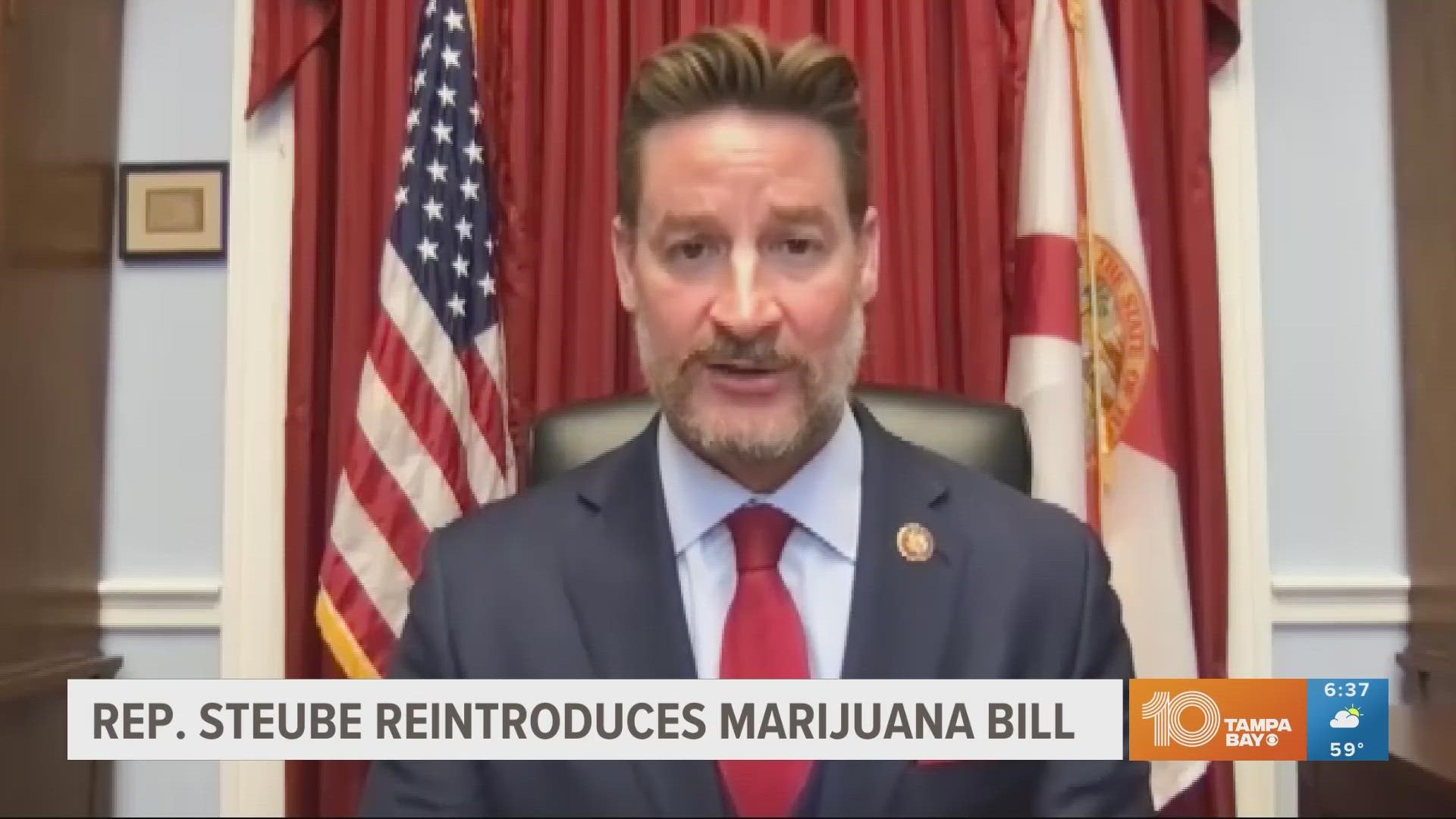WASHINGTON — U.S. Rep. Greg Steube, a Republican congressman from Sarasota, has refiled a bill to change the way marijuana is classified at the federal level.
It's called the "Marijuana 1-to-3 Act," and it would reschedule marijuana from a Schedule I controlled substance to a less restricted Schedule III controlled substance.
In the U.S., drugs are classified into five different categories based on the "drug’s acceptable medical use and the drug’s abuse or dependency potential," according to the Drug Enforcement Administration.
Schedule I drugs are the most restricted as they "have a high potential for abuse and the potential to create severe psychological and/or physical dependence," the DEA website reads.
Marijuana is currently classified as Schedule I along with LSD, heroin and ecstasy. Drugs in this category are said to have "no currently accepted medical use."
Steube's bill, which was introduced in the House just more than a week ago, would drop marijuana to Schedule III — the same category as testosterone, ketamine and Tylenol with codeine.
The "Marijuana 1-to-3 Act" would allow researchers to access federal funds to determine marijuana's medical value, according to a release from Steube's office.
This isn't the first push to lower marijuana's scheduling with the DEA. Steube filed the "Marijuana 1-to-3 Act" before in 2019 and 2021.
In October, President Biden also asked the secretary of Health and Human Services (HHS) and the attorney general to review the drug's classification along with several other significant marijuana reforms.
The DOJ said it would “launch a scientific review” over the matter, but there were no immediate changes.
All this comes as an amendment to legalize recreational marijuana in Florida got one step closer to making it on the 2024 ballot.
Next, the Florida Supreme Court will review the amendment's language. If the court approves it, the amendment's sponsors will need to collect almost 900,000 to get it on the ballot.

